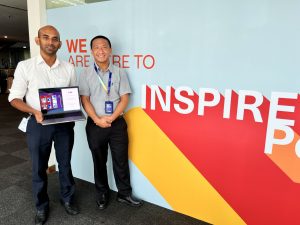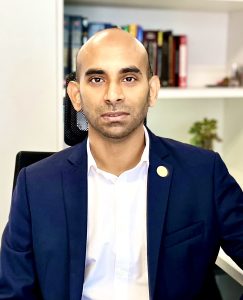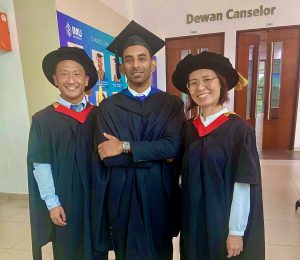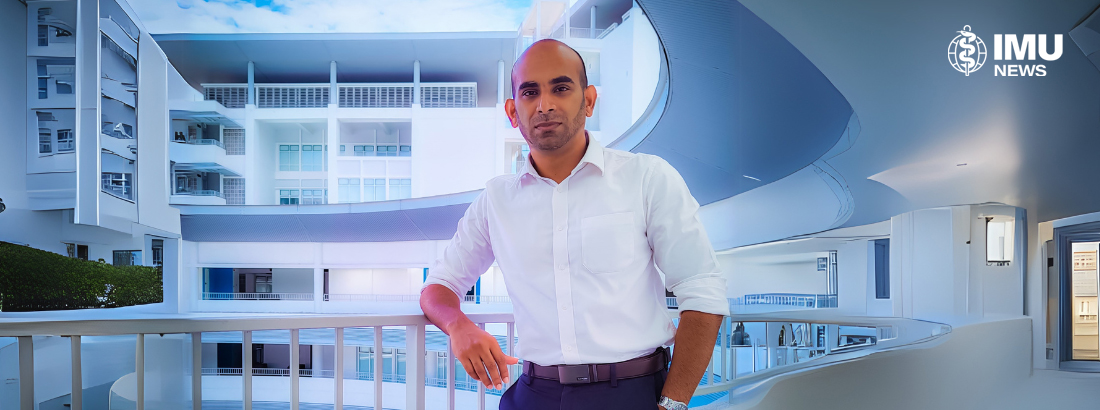The one-year Master in Health Informatics and Analytics programme at IMU has been an invaluable journey, significantly deepening my understanding of how technology and data revolutionise healthcare. As someone already working in digital health research and innovation under the Ministry of Health Malaysia (KKM), this programme has provided critical insights that have enhanced my ability to conduct research with greater meaning and impact. By bridging academic learning with practical applications, it has equipped me to harness these technologies more effectively, improving both the process and outcomes of my work.
The programme offered a comprehensive curriculum that explored the lifecycle of healthcare data, from collection and processing to generating actionable insights. Lectures and practical training sessions illuminated how data could fuel innovation and drive evidence-based decision-making in healthcare. These lessons highlighted the importance of not just gathering data but interpreting it to deliver meaningful results. For instance, case studies on predictive analytics demonstrated how data could optimise patient outcomes, reduce hospital congestion, and refine healthcare policies. These real-world examples showcased the transformative power of health informatics.

A significant strength of the programme was the dedication and expertise of the lecturers. Their passion for the subject and commitment to student success created a dynamic and supportive learning environment. They ensured we stayed abreast of the latest advancements, blending theoretical concepts with practical relevance.
The exposure to real-world applications and cutting-edge technologies made even complex topics accessible and engaging.
Beyond teaching, they challenged us to think critically and apply our knowledge creatively to solve healthcare challenges.
Adding immense value to the programme was the involvement of external experts from academia and industry. Renowned professionals, such as those from Rutgers University, provided global perspectives, while local experts shared practical insights on data security and privacy. These sessions enriched our understanding of health informatics and its applications across different contexts. The opportunity to learn from such a diverse pool of experts highlighted the importance of interdisciplinary collaboration in advancing healthcare technologies.
The collaborative and supportive nature of the programme was another highlight. My peers, hailing from diverse professional backgrounds, brought unique perspectives that enriched discussions and projects.
This diversity fostered an environment of mutual learning, where ideas were freely exchanged and refined. Working together on group assignments, often under tight deadlines, strengthened our problem-solving skills and emphasised the value of teamwork in addressing complex healthcare issues.
These experiences also cultivated resilience and adaptability, essential traits for professionals in a rapidly evolving field.

The programme’s emphasis on practical, hands-on learning was pivotal. Workshops and simulation exercises provided opportunities to apply theoretical knowledge to real-world scenarios. For example, a project involving predictive analytics for patient outcomes allowed us to employ machine learning models and statistical techniques to identify actionable trends in healthcare data. These experiences not only enhanced our technical skills but also highlighted ethical considerations in handling sensitive health information. The focus on cutting-edge technologies such as artificial intelligence and blockchain ensured that we remained at the forefront of innovation.

Reflecting on this journey, I am particularly grateful for how the programme has enhanced my ability to make a meaningful impact in my work at KKM. It has deepened my understanding of health informatics and analytics, equipping me to approach challenges with confidence and creativity. The insights gained have not only improved my technical expertise but also broadened my perspective on the role of technology and data in addressing healthcare disparities and driving innovation.
The programme has also offered invaluable networking opportunities, connecting me with professionals from academia and industry. These interactions have provided insights into the global landscape of health informatics and inspired me to explore new possibilities for collaboration.
As I continue my work in digital health research and innovation, I am confident that the knowledge and skills gained through this programme will enable me to drive impactful changes in healthcare, both locally and globally.
Written by Mohan Dass Pathmanathan


No approved comments.